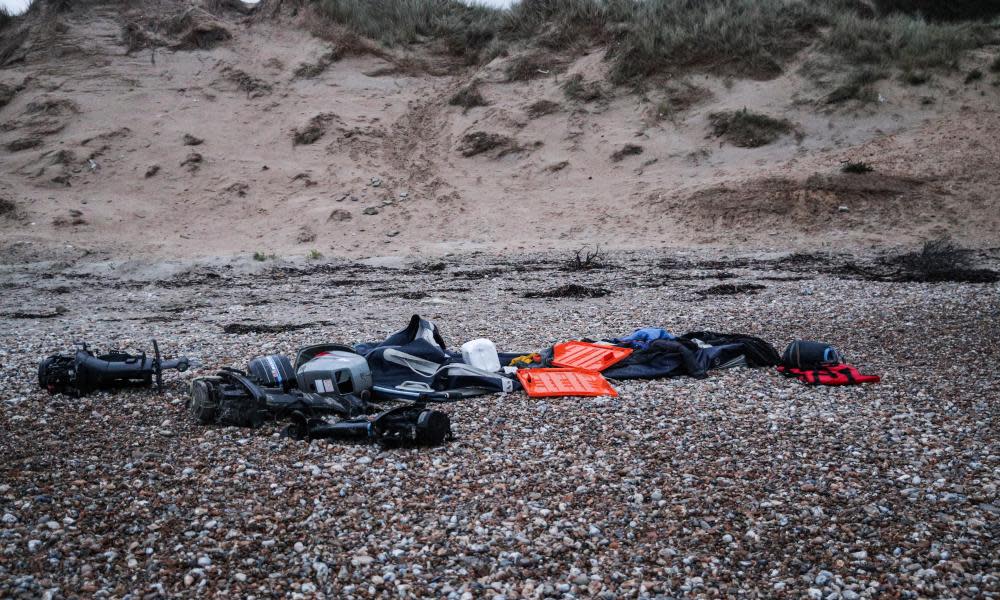UK agrees to launch full inquiry into drowning of 27 people in Channel

The government has agreed to launch a full investigation into the drowning of at least 27 people trying to cross the Channel in a small boat last November.
The decision by the transport secretary, Grant Shapps, to agree to what is known as an article 2 inquiry – an independent investigation – is revealed in correspondence between his lawyers and eight relatives of 11 of the victims.
Those who drowned included 17 men, seven women – one of whom was pregnant – and three children. The International Organization for Migration has described it as the biggest single loss of life in the Channel since it began keeping records in 2014.
Shapps acknowledged that the current internal investigation into the incident by the Marine Accident Investigation Branch (MAIB) was not sufficient and did not meet the criteria for an article 2 compliant investigation.
These investigations are often wide ranging and can call for evidence from a variety of government and non-government sources.
Lawyers for the bereaved relatives have said “serious failings” in the rescue operation may have contributed to the dozens of deaths in the Channel.
Families of the victims had called for a public inquiry to determine whether acts or omissions of the British agencies involved in the search and rescue mission on 24 November resulted in breaches of the European convention on human rights.
Lawyers say the bereaved relatives have provided substantial evidence that indicates the boat was in British waters before it sank.
Shapps said the public investigation should only start once the MAIB investigation had concluded. The bereaved families argue that the article 2 investigation should be launched sooner.
Maria Thomas of Duncan Lewis solicitors, who is representing the eight bereaved relatives, said: “The decision to conduct a full investigation is welcomed by the families, who have suffered unimaginable pain in the past six months as a result of not only losing their loved ones, but also from remaining in the dark regarding the events of the night, and not knowing whether it would ever be properly investigated. This commitment by the UK government to examine what happened will provide some comfort in what remains a difficult time for them.”
The Paris prosecutor’s office received a manslaughter lawsuit from the organisation Utopia 56. It accused the maritime prefect of the Channel and North Sea, the Regional Operational Centre for Surveillance and Rescue of Gris-Nez in the Pas-de-Calais and the British Coastguard of not doing enough to prevent the deaths.
The only two survivors of the disaster told Kurdish media those on the boat made distress calls that were ignored as their canoe deflated and their engine broke. They claim the British said the boat was in French waters, and the French the reverse.
The Department for Transport declined to comment.

 Yahoo News
Yahoo News 
